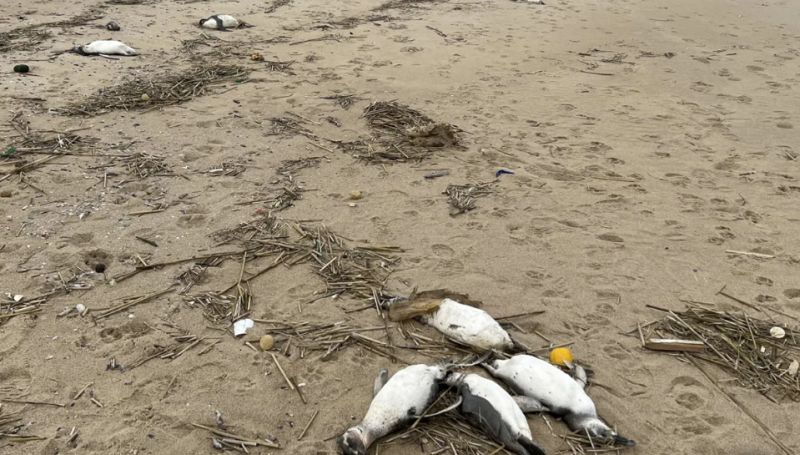
Montevideo: The cause of death is still unknown, but authorities told AFP on Friday that about 2,000 dead Magellanic penguins have washed up on the Uruguayan coast in the previous ten days.
According to Carmen Leizagoyen, the head of the Department of Fauna at the Environmental Ministry, nine out of ten of the birds were young birds that arrived with empty stomachs and low fat reserves.
Since none of the animals had a positive bird flu test, concerns that the die-off might be caused by the virus were unfounded.
Also Read: Expert advises MPs that the UK should repatriate citizens from Syrian camps
Although a mass bird death of a similar nature occurred in Brazil last year, the causes are still unknown, and the quantity of dead birds is extremely unusual. Leizagoyen remarked, "Some percentage of people dying is normal, but not these numbers."
Some environmental NGOs attribute the starvation of the penguins to overfishing. According to Richard Tesoro of the NGO Marine Wildlife Rescue, the issue has existed since the 1990s.
Also Read: Jordan denounces the Danish Qur'an burning
"The resource is overexploited," he told AFP, adding that he had observed petrels, albatrosses, sea lions, sea turtles, and seagulls wash up on the beach in Uruguay's Maldonado district.
Additionally, earlier this month a subtropical cyclone off the southeast coast of Brazil may have killed already-weakened birds.
In search of food and warmer water, Magellanic penguins typically migrate north from their breeding grounds in southern Argentina.
When a severe heat wave hit Punta Tombo, one of their largest breeding colonies in Argentina's Chubut Province, more than 300 Magellanic penguins perished in 2019. When the temperature reached 111.2 degrees Fahrenheit (44 degrees Celsius), many of the birds could not get to the sea in time to properly cool off before passing away from dehydration.
Also Read: UNHCR: Jordan Needs Urgent Funding to Help Syrian Refugees
Last year, hundreds of little blue penguins washed up on the shores of New Zealand. The mass mortality was attributed to starvation because the fish they usually eat had moved to deeper waters as a result of climate change. While some attributed this to climate change, others argued that it was a normal cycle.